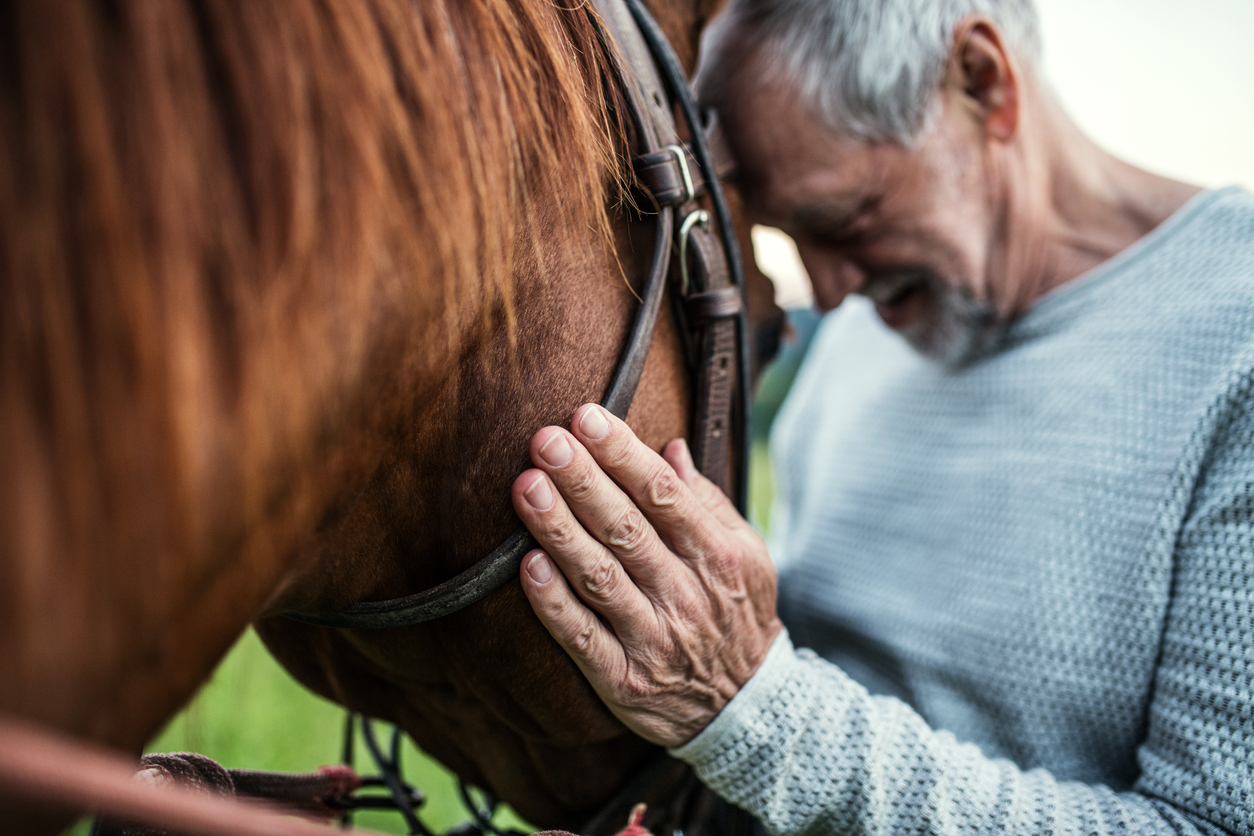What is Equine Therapy?

Equine therapy is a lesser-known, but greatly beneficial, therapy modality with a particular focus on mindfulness, physical and mental health and wellness. The relaxing, therapeutic setting of equine therapy provides a venue for individuals to reflect and care for themselves and their horses.
How does equine therapy work?
What is equine therapy? Well, it’s exactly as it sounds; a form of therapy that consists of activities with horses, with a focus on the positive experience and interaction between humans and horses. It is typically used in conjunction with other more traditional forms of therapy, like one-on-one counseling, family therapy, group therapy and medication-assisted treatment.
Equine therapy is more than just grooming or riding horses. Mental health professionals and equine specialists team up to facilitate activities between the client and their horse that serve as the basis for equine therapy. The client will first meet all of the horses at the stable and choose the one they feel the strongest connection with. They will then gradually build trust with their horse. Equine therapy activities often include:
- Mindfully interacting with the horse. Horses are very perceptive animals and are thought to react to human emotions. It’s important for the client to be aware of how they approach, touch, and speak to their horse.
- Caring for the horse’s basic needs, including grooming and feeding. Grooming in particular is relaxing and helps foster a bond between the horse and its handler. Grooming includes cleaning hooves, brushing, currying and combing.
- Engaging with the onsite counselors and equine specialists while interacting with the horse. During certain activities like grooming, it can be beneficial for the client to discuss their feelings and thought processes with each decision they make. This helps the client stay focused on their task, and also helps inform the progress they have been making in equine therapy.
- Learning new skills and exercises with the horse, including walking, trotting, leading, mounting, lunging, yielding and circle work.
- Fitting a halter, which requires trust and patience in both the horse and the handler. Fitting a halter is another situation in which the handler must be in tune with their emotions, as the horse can pick up on any anxiety, aggression or agitation and will respond accordingly.
A major tenet of equine therapy is giving agency and responsibility to the individual caring for their horse. On a basic, fundamental level, the activities in equine therapy are meant to teach the client how to control their horse while improving sensory skills, motor skills, coordination, balance and posture. The spirit of equine therapy, though, has significant positive mental and emotional health implications. Working closely and forming a relationship with horses can help build self-confidence, facilitate independence, teach accountability, improve self-respect and self-esteem and process emotions in a healthy way. An added bonus of equine therapy is that it can remain a lifelong hobby for the client after they have completed their treatment.
Who utilizes equine therapy?
Equine therapy benefits people of all ages and backgrounds. It was first used in the 1990s to treat lasting symptoms of polio, but its positive impacts have since extended to several more physical and mental disorders. Equine therapy has been known to be used in the treatment of ADHD, generalized anxiety disorder, autism, social anxiety disorder, depression, cerebral palsy, social multiple sclerosis, spinal cord injuries and more.
Equine therapy is perhaps most commonly utilized in the treatment of drug and alcohol addiction. Addiction specialists have found that the responsibility of caring for a horse can be effective in promoting confidence, independence, self-awareness, healthy coping tools, trust and responsibility in individuals in recovery. Within the context of treating addiction, equine therapy is often used in conjunction with more traditional therapy modalities like psychotherapy, and it is this combination that helps treat the whole person.
Silver Ridge Recovery takes a holistic approach to mental health, promoting a mind, body and spirit perspective when nourishing mental health and wellness. Reach out today at 855-945-7788 if you are interested in trying equine therapy.









